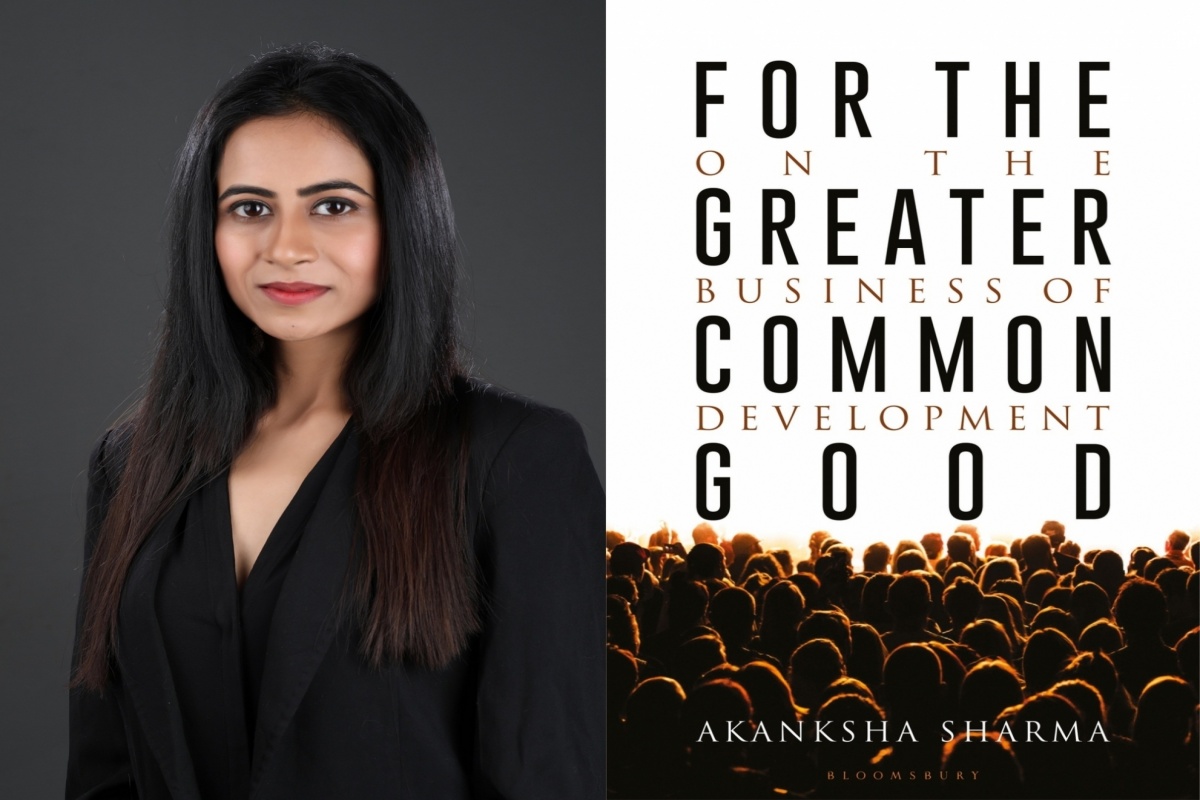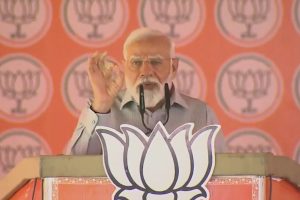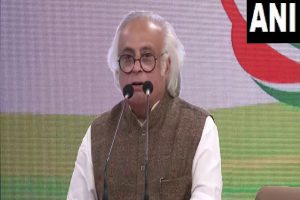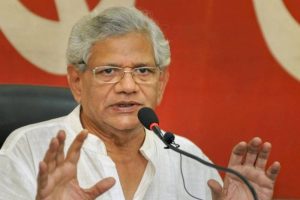She says fiction is the best way to tell complex stories of the world, that she loves love stories. While her debut book eFor the Greater Common Good may fall in the non-fiction genre, author Akanksha Sharma smiles, “We need more literature to collectively break through the imagination of our times.”
Published by Bloomsbury Publishing India, eFor the Greater Common Good’ brings together the author’s varied perspectives, gathered in around one and a half decade of eclectic global experience on International Development at the intersection of public-private-social sector.
Sharma, a Social Impact, Sustainability & Policy Leader, says about the book, “It is about embracing many worlds. Both within and beyond, which is fractured into infinite things — lie many other worlds waiting to be embraced. This is what the book brings forth. It presses upon eliberating hope’ colonized into our fragmented world, reflecting stark disparities all around.”
The Jaipur-born author says that for long she has always been intrigued with the larger question of eWhat all happens in the name of Development?’ “And the journey to seek answers to this, was full of wandering and wondering. In around one and a half decade, my work took me to a wide spectrum of development issues addressing growing inequalities, cries of hunger and poverty, struggles for basic amenities like health-care, education, clean water and sanitation. But there is so much to it that demands eurgent intervention’. In some way, this book is the outcome of many questions that have perturbed me for years to solve some of these issues.”
Adding that the book has travelled a long way with me, she says writing is fluid process. “I feel it is a natural progression of my work over the years and how I imagine the possible solutions. But then writing is an art too, and during the process, one evolve with every sentence that’s written and also with the ones’ that cannot be. My contention of writing this book was to redesign the narrative to believe in a world that carries many bridges but no walls, a world where our battles for love take over all other battles, a world where each one of us finds a place.”
Stressing that the post-pandemic world has brought to the surface several ugly truths that need to be looked into with urgency, for Sharma, a major aim of the book has been to to simplify the complex issues of the world for everyone.
“Also, the fact that we all experience, witness, navigate through or suffer due to all these problems which are very part of our existential system. They have not been borrowed from anywhere, so this whole perspective of ewhy should we be bothered about it’ needs to be abandoned. We can no longer afford to ignore these issues that affect all of us. We can’t change the world with old ideas that have been part of the problems from ages. I have tried to literally cut through the opacity of narrative for the importance of both etruth’ and the idea of a better world’.”
Adding that the research process involved much more than factual precision, she says that her debut work brings years of research to look at the global problems and their possible solutions with a fresh perspective. “Considering the present global world order, in order to ascertain socio-economic progress, sustainable development must be pluralized. However, our dissonance of development would neither be sustainable nor inclusive, if it is seen as mere philanthropy by the advantaged and influential agents of the economic order. This book deconstructs those complex notions of development for addressing some of the most pressing issues of the world without any ideological polarisation. I have tried to create a simplified narrative that’s written with as much warmth as courage, as many facts as poetry.”
Sharma feels we are not only living in complicated, but also alarming times. Apart from the pandemic that has brought a global turmoil, growing inequalities of all kinds, and climate disruptions are pushing us together into a dangerous future. “It is high time that we need to reboot our imaginations and paint an image that celebrates the multiplicity of many worlds within and beyond this vast global village,” she concludes.











